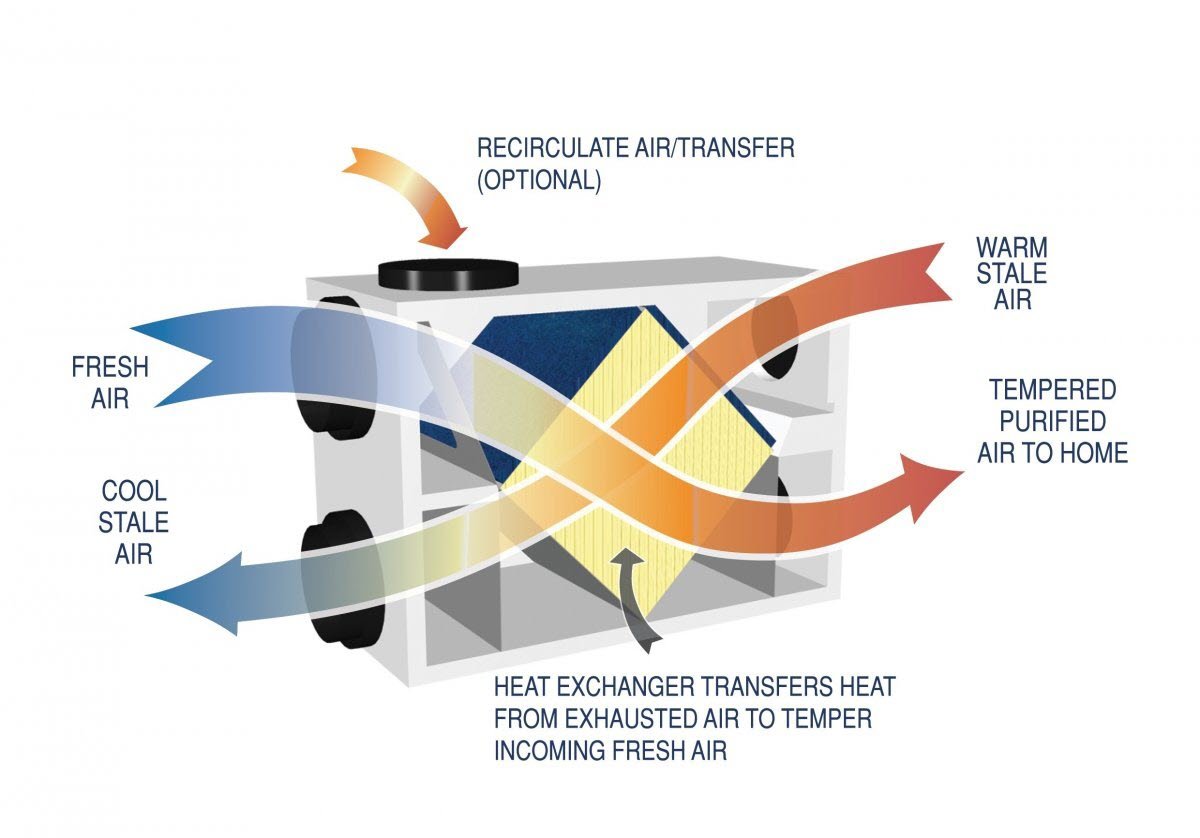Heating Recovery Systems
Supplies fresh air to rooms in your home or business premises while extracting moisture and heat from wet areas
Benefits of Heat Recovery
Heat recovery systems are technologies that capture and utilize waste heat generated from various processes to increase energy efficiency and reduce energy consumption. These systems recover and recycle heat that would otherwise be wasted, transferring it to other applications where it can be used effectively. Here's an overview of how heat recovery systems work and their benefits:
Heat Sources: Heat recovery systems can capture waste heat from a wide range of sources, including industrial processes, exhaust gases, ventilation systems, refrigeration units, and wastewater. These heat sources typically release thermal energy into the environment, which can be harnessed for other purposes.
Heat Exchange: Heat recovery systems utilize heat exchangers to transfer the captured waste heat to a different medium or system. The heat exchanger facilitates the transfer of heat from the source to a heat sink, where the recovered heat is utilized.
Types of Heat Recovery Systems: There are various types of heat recovery systems, each designed to recover heat from specific sources and for specific applications. Some common types include:
Air-to-Air Heat Recovery: These systems capture waste heat from exhaust air and transfer it to incoming fresh air, improving energy efficiency in ventilation systems.
Water-to-Water Heat Recovery: These systems recover waste heat from hot water or steam streams and transfer it to another water stream, such as preheating domestic hot water or process water.
Exhaust Gas Heat Recovery: These systems capture waste heat from exhaust gases produced by combustion processes, such as industrial furnaces or engines, and use it for space heating, water heating, or power generation.
Refrigeration Heat Recovery: These systems recover waste heat generated by refrigeration units and use it for space heating, water heating, or preheating the refrigerant entering the system, improving overall efficiency.
Industrial Process Heat Recovery: These systems capture waste heat generated by industrial processes, such as manufacturing or chemical processes, and repurpose it for heating or other energy-intensive applications within the facility.
Benefits of Heat Recovery Systems: Heat recovery systems offer several benefits, including:
Energy Efficiency: By capturing and reusing waste heat, these systems reduce the need for additional energy inputs, resulting in improved energy efficiency and reduced operating costs.
Environmental Impact: Heat recovery systems help lower greenhouse gas emissions by reducing the reliance on fossil fuel-based energy sources and optimizing energy usage.
Cost Savings: Recovering waste heat can lead to significant cost savings by reducing the need for conventional heating or cooling systems and minimizing energy consumption.
Increased Sustainability: Heat recovery systems contribute to sustainability goals by utilizing waste heat that would otherwise be lost, making better use of available resources.
Improved Process Efficiency: Industrial heat recovery systems can improve the efficiency of industrial processes by utilizing waste heat in other process steps, enhancing overall productivity and reducing waste.
Heat recovery systems can be customized based on the specific requirements and heat sources of a facility. Proper design, sizing, and integration with existing systems are crucial to ensure effective heat recovery and optimal performance. Consulting with experts in the field of heat recovery and energy management is recommended for the selection and implementation of heat recovery systems. Revolution Energy are here to help!



